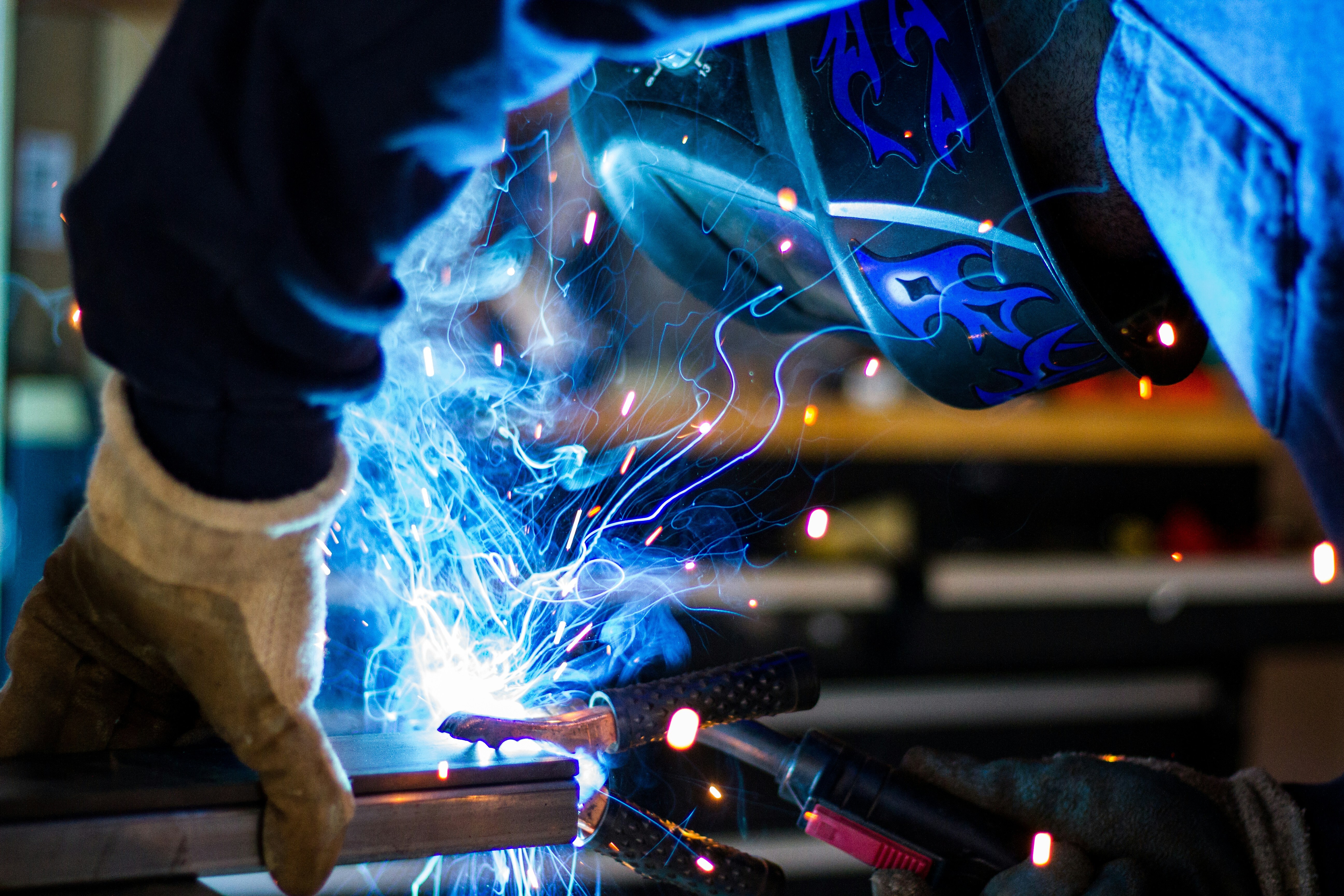
Whether it's porcelain tableware, cool bespoke wardrobes or trendy clothes, if your company makes physical products, there are extra risks involved. In this article, we point out dangerous situations and give you tips to prevent accidents in your manufacturing company.
A chocolaterie, a jewellery workshop, a furniture or cheese factory ... To list all possible production companies here is impossible. But one thing always applies: if you have a manufacturing business, you will be working with machines, tools, ovens or materials that someone could hurt themselves on.
And an accident never comes alone. Often, apart from injuries, it also brings financial losses. For instance, when your production is delayed because of the accident and you therefore miss out on sales opportunities. Or when you, as a company , are legally liable for damage to others and thus face damages or legal fees. Moreover, your company's good reputation is also at stake.
In short, watertight risk management is no luxury if you want to protect your team and safeguard the continuity of your company . If you have 20 employees or more, as an employer you are obliged to appoint a prevention advisor for this purpose. In a smaller SME, you can take on this role yourself as an employer, although you must join an external occupational prevention and protection service (EDPBW).
In three logical steps, turn your business into a safe workplace.
Be aware of the risks
Grab a notebook in hand, put on your critical glasses and take a tour of your business:
Which appliances and machines can cause problems and are they protected? Note saws, ovens, forklifts, welding equipment, knives ...
Do you have toxic or highly flammable substances in your home and do you store them correctly and safely? E.g. gas, varnish, fertiliser ...
Where in your business is there an increased risk of fire? Look out for places where it gets very hot, where a lot of dust is made, where there is a lot of flammable material ...
Having identified all the risks of your business activity, you can decide how to deal with them as a company. In other words, is what it brings you worth the risk?
Some risks you may just be able to take, others you will mitigate with preventive measures. Against heavy risks, it is better to cover yourself solidly with insurance.
To make it easier for you to monitor all the risks in your company, the FPS Economy has developed a comprehensive set of templates and checklists (in Dutch). A handy recommendation!
Take preventive measures
In a production company, it is impossible to eliminate all risks. But you can mitigate them. Some points of interest:
Personal protective equipment (welding goggles, mouth masks, gloves ...) protects you and your employees when working with hazardous machinery and substances.
Training for anyone who might encounter high-risk situations (sawing machines, toxic substances, furnaces ...) can prevent a lot of mischief.
Signalling with [danger symbols] (in Dutch) reminds people to be careful.
Regular inspection and maintenance of machinery and equipment prevent a defect from causing an accident.
Safety protocols and emergency procedures, which you regularly rehearse with the whole team, ensure that everyone knows what to do should things go wrong one day.
Fire safety equipment (e.g. fire extinguishers and blankets) and first-aid equipment will help you and your employees respond quickly in case of an accident.
Insure for the consequences of an accident in your business
Compulsory insurances
Some insurances are compulsory for businesses: accident at work insurance as soon as you have one employee and civil liability insurance if you own commercial vehicles. If you practise a regulated profession or your business is located in a publicly accessible building, you have even more compulsory insurance to take out.
Accidents at work
Anyone can become the victim of a workplace accident at any time. That’s why you, as a business owner and employer, are required by law to take out work accident insurance.
Third party liability
Sometimes things can go wrong in the conduct of your business and result in loss or damage. The policy will compensate the party suffering loss on your behalf. Third-party liability insurance for your business therefore protects your company
Specifically to cover yourself against the financial consequences of an accident, we recommend considering these non-compulsory insurances as well:
Fire insurance
Insurance professional BA or professional liability insurance
Business interruption insurance
Machinery breakdown insurance
Legal expenses insurance
Sure you are correctly insured for the specific risks in your manufacturing business?
We discuss your situation and go over which additional insurances might be useful.
